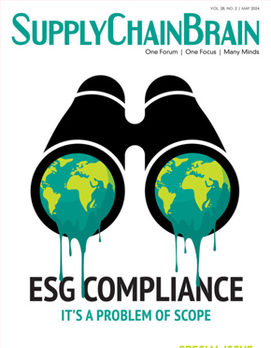
Due to the COVID-19 pandemic, most non-essential facilities and businesses across the country were required to shut down temporarily. Although many companies have modified their global strategies, international trade has been, and will continue to be, impacted.
In fact, according to the recent DHL Express 2020 International Trade Impact and Outlook survey of over 2,000 small and medium-sized enterprises (SMEs), 49% of respondents said the pandemic caused their businesses to take a more conservative approach to global trade. Only 15% are taking a more aggressive approach, while 36% are maintaining their previous international strategy. It’s not surprising that the majority of businesses are being conservative since, according to the survey, an overwhelming 78% of respondents have had business revenues decrease either slightly or significantly during the COVID-19-related disruptions.
Fortunately, as more businesses reopen, new trade programs and agreements such as the official implementation of the U.S.-Mexico-Canada Agreement (USMCA) on July 1, 2020 promises to be a bright light for many businesses struggling to find their path to recovery.
The USMCA replaces the 25-year-old North American Free Trade Agreement (NAFTA). It creates countless opportunities for U.S. companies who already do business with Canada and Mexico, or are planning to do so.
However, according to the survey, many SMEs in the U.S. are unaware of the significant benefits offered by the new trade legislation. While 42% of respondents said their business will be significantly or moderately impacted by the USMCA once it's implemented, 23% didn’t know how it would impact their business, and 35% said there would be no impact to their business at all.
This is likely due to some residual negative attitudes towards NAFTA; many thought its regulations too burdensome and the amount of paperwork onerous. However, many companies are optimistic about this new trade agreement, because the USMCA offers technological advancements and provisions designed to keep trade barriers low, resulting in new export opportunities for businesses still struggling to survive.
The Advantages
The USMCA streamlines trade between the three countries by adopting new and innovative customs procedures such as e-signatures, self-certification of origin, and other measures. It boosts e-commerce and the digital economy by ensuring that data moves freely across borders, and that localization of data is prohibited. The pact also contains strong enforcement tools that guard against the counterfeiting and piracy of intellectual property rights — safeguards that could prove to drive innovation, create economic growth, and support American jobs.
Furthermore, the USMCA is wide-ranging, and benefits companies from a variety of industries. Whether the company is supplying smocks, hammers and equipment to a manufacturer, or selling jewelry, paintings or purses on Shopify, there's enormous upside potential in marketing to the growing consumer class in Mexico who currently purchases a lot of goods via e-commerce.
Additionally, to promote more cross-border trade, Mexico and Canada are raising their de minimis shipment-value levels. A higher de minimis threshold reduces the cost of moving goods internationally, and means more goods can clear customs faster. For the first time in decades, Canada will raise its de minimis level from C$20 to C$40. Canada will also provide for duty-free shipments up to C$150. Mexico is continuing to offer US$50 tax free de minimis, and will also process duty-free shipments up to the equivalent of US$117. Plus, shipment values up to these levels will encounter minimal formal entry procedures, making it easier for SMEs to participate in cross-border trade.
According to the Office of the U.S. Trade Representative (USTR), increasing de minimis levels with key trading partners like Mexico and Canada would result in a highly positive outcome for SMEs from the U.S. These companies, which endure trade-restrictive compliance costs triggered by low de minimis levels placed on lower-value shipments, often lack the resources to pay customs duties and taxes.
The USTR also noted that new traders entering the Mexican and Canadian markets further benefit from lower delivery costs. In addition, U.S. express carriers, who deliver many low-value shipments for these traders, stand to benefit from lower costs and improved efficiency.
COVID-19 Impact
The COVID-19 crisis has highlighted the interrelationship between Canada, Mexico and U.S. trading partners. In the near future, more companies will take advantage of near-shoring in order to exploit trade opportunities closer to home, rather than sourcing from overseas.
The ease of collaboration, proximity of travel, and minimal time-zone differences promise to make North American countries critical trade partners during these uncertain times.
What’s more, in preparation for the July 1, 2020 implementation of the USMCA, U.S. companies should take advantage of free resources, such as an upcoming webinar DHL is hosting in July on the USMCA and the new Customs and Border Protection (CBP) Center. Staffed with operational, legal, and auditing experts, the CBP Center is a cornerstone of the USMCA implementation plan. Working in collaboration with Canadian and Mexican Customs authorities, it will serve as a central communication hub for traders, brokers, freight forwarders and producers, in order to ensure a smooth and efficient transition from NAFTA to USMCA.
Eugene Laney is head of international government affairs with DHL Express U.S.







